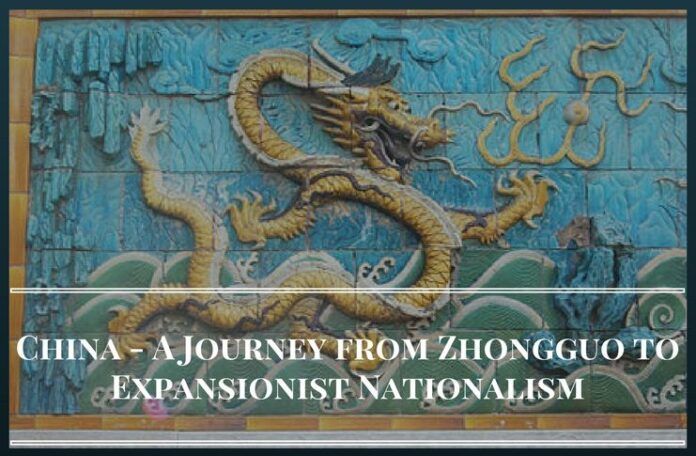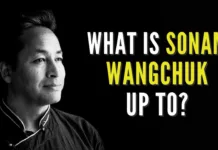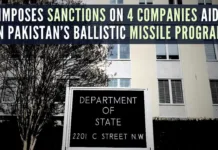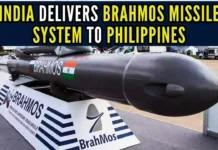
China is realising and expanding its ‘Expansionist Nationalism’ in three dimensions (3D)
Since 1000 BC up until the end of 17th Century, China suffered a “Zhongguo Syndrome.” Apparently, Zhongguo is also the Mandarin name for ‘China,’ and the acronym comes from “Zhonghua Renmin Gongheguo” which means “Middle Glorious People’s Republican Country”. The rulers of the Zhou Dynasty (1046-256 BCE) believed that Zhongguo (or China) was in the middle of the universe, and there were barbarians all around them. For the next three millennia, the Chinese civilisation never looked beyond the realms of their sphere and considered themselves to be spiritually pure and culturally superior to the rest of the world.
But in the 18th century, imperialism brought Westerns to their door steps. The next two centuries were in stark contrast to the first three millenniums of their existence. In a span of 200 years, China endured a series of humiliations and a West led hegemony; it overthrew the monarchy; withstood two Japanese invasions; a civil war which transitioned them to communism.
Mao Zedong – The founding father of the Communist China. His two years of Cultural Revolution in 1966 redefined patriotism and national ambitions for the country
2,700 years of “Zhongguo Syndrome” suddenly mutated and switched over to an “Expansionist Nationalism”. Wikipedia defines, “Expansionist Nationalism” as an aggressive and radical form of nationalism that incorporates autonomous, patriotic sentiments with a belief in expansionism. Philosophies professed by Confucius, Sun Tzu, Mao Zedong and Deng Xiaoping have beaconed this revolutionary journey from Zhongguo to Expansionist Nationalism.
Confucius – A teacher, politician, and philosopher. No other man in Chinese history has ever so influenced the spirits, belief and social structure of their society. For 2000 years, with little variations, Confucianism was the principal ideology of China – moral conduct, ethical living and an inward approach to keep oneself united. Confucianism was complementary to Zhongguo and it preserved the middle kingdom mentality for generations. But, the Gulf War of 1991 and US invasion of Afghanistan in 2001, marked the turning point; and China acknowledged the capacity deficit to look outward and found itself lagging in the neo-colonialism race.
Sun Tzu – A Chinese general, military strategist, and philosopher; who wrote the famous military stratagem ‘Art of War’. Till date, his 13 postulates find relevance in warfare. In its quest to reclaim a dominant space in the world order, China has conspicuously followed two of Sun Tzu’s principles – Deception and winning wars without fighting. “All warfare is based on deception” and “To win one hundred victories in one hundred battles is not the acme of skill. To subdue the enemy without fighting is the acme of skill.”
China is pursuing Mao’s ambition to glorify China and Communism which has no scope for power-sharing
Mao Zedong – The founding father of the Communist China. His two years of Cultural Revolution in 1966 redefined patriotism and national ambitions for the country. There was no room for power-sharing with anyone in the world. He asked for “drawing a clear distinction between us and the enemy.”
Deng Xiaoping – A Chinese revolutionary, statesman and the second President from 1978 – 1989. His Four Modernisation initiatives – Agriculture, Industry, Science & Technology and National Defence; resurrected China to the centre stage of the world. Rapid progress and sustained growth lifted the newly formed Peoples Republic of China, from the abyss of humiliation to the pinnacle of the emerging world, which was rebuilding itself into the power blocs post the Great Wars.
Although modern China has discarded Confucianism and Zhonggu, yet it enacts an orthodoxy to apply Sun Tzu’s deception to tell the world that, ‘China is not looking beyond its interest.’ It is the strategic deception to win without wars. Whereas, in reality, China is pursuing Mao’s ambition to glorify China and Communism which has no scope for power-sharing. Deng’s modernisation drive has put China on a growth pedestal from where it is executing a well-orchestrated ‘Expansionist Nationalism’, which now threatens the global geographic control and power matrix.
Today China is realising and expanding its ‘Expansionist Nationalism’ in three dimensions (3D) by grabbing real estates in Land, Sea and Air. It’s five pronged strategy includes…..
- Land & Sea Grab – Island Chain Strategy.
- Vertical Envelopment – China’s Air Defence Identification Zone (ADIZ).
- The Silent Land Grab – African Rout.
- The Neighbourhood Grab – Asian Extension.
- The Master Stroke – One Belt One Road.
To be continued…
- हिन्दू धर्म – एक तबाह अन्तः मन और उसके जीने का संघर्ष - August 17, 2017
- Kashmir – Diagnosis and Cure - August 16, 2017
- Hinduism – A Ravaged Soul and the Quest for Survival - August 13, 2017










